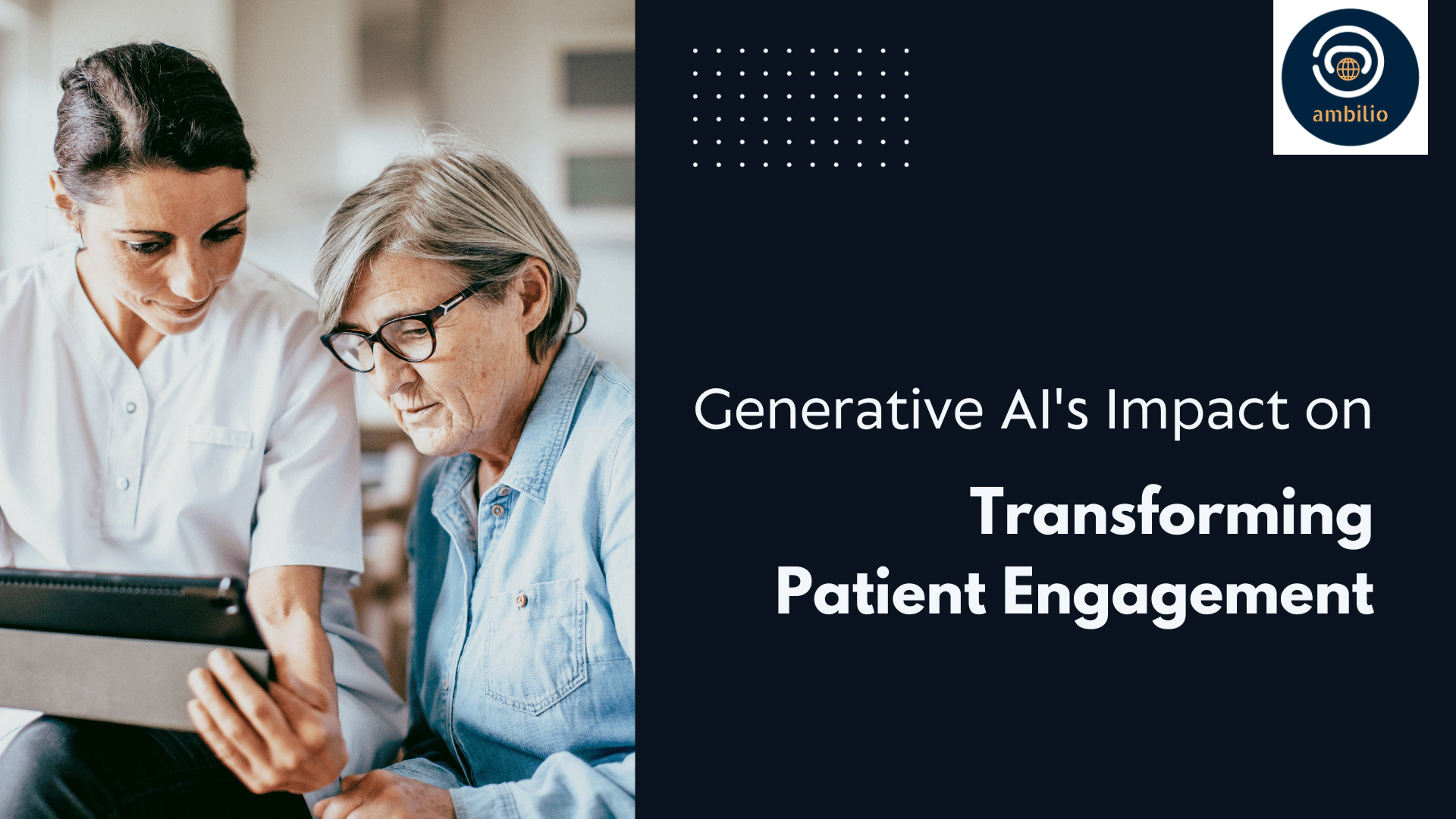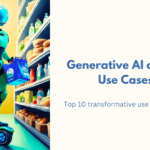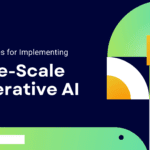In recent years, the healthcare industry has witnessed a significant paradigm shift with the integration of innovative technologies, and one such groundbreaking advancement is Generative Artificial Intelligence (Generative AI). This cutting-edge technology holds immense potential to revolutionize patient engagement by providing a host of benefits that range from simplifying health information to offering personalized care and emotional support.
Digestible Health Information: Bridging the Knowledge Gap
Navigating the complex landscape of healthcare information can be overwhelming for patients. Generative AI addresses this challenge by offering a solution that transforms intricate medical concepts into digestible and relevant information. By breaking down complex jargon into easily understandable language, patients can gain a better grasp of their health conditions, treatment options, and overall well-being. This not only fosters health literacy but also empowers patients to make informed decisions about their healthcare journey, contributing to a more engaged and proactive patient population.
Real-time Feedback: Empowering Patients Through Data Insights
One of the remarkable features of generative AI is its ability to provide real-time feedback to patients. This dynamic tool monitors and analyzes patient behavior, health-related choices, and progress against treatment plans. By offering instant feedback, patients receive timely insights into their health status, encouraging them to actively participate in their care. This proactive engagement can lead to better adherence to treatment plans, lifestyle changes, and overall improved health outcomes. Real-time feedback becomes a motivator, turning healthcare into a collaborative effort between patients and their healthcare providers.
Emotional Support: Understanding Beyond Medical Jargon
Healthcare is not just about physical well-being; it also involves the emotional aspects of coping with illnesses, diagnoses, and treatment plans. Generative AI, with its ability to understand and respond to human emotions, plays a pivotal role in providing emotional support to patients. By translating complex medical information into a more understandable format, this technology ensures that patients feel supported and empowered throughout their healthcare journey. This emotional connection is vital, especially during challenging times, fostering a sense of trust and security in the patient-provider relationship.
Personalized Care: Tailoring Assistance to Individual Needs
Every patient is unique, and their healthcare needs vary. Generative AI excels in offering personalized care assistance by tailoring information, drug use instructions, and lifestyle support based on individual preferences and requirements. This level of customization enhances patient engagement by addressing specific concerns and considerations, ultimately leading to more effective and patient-centric care. The shift towards personalized healthcare represents a significant stride in improving patient outcomes and satisfaction.
Health Education Assistance: Empowering Consumers and Caregivers
Generative AI extends its impact beyond individual patients to reach a broader audience, including consumers and caregivers. By providing health education assistance, this technology contributes to early disease education, prenatal care, and overall health awareness. The democratization of health information ensures that individuals are well-informed, enabling them to take proactive measures for preventive care and early intervention. This inclusive approach fosters a community of health-conscious individuals, creating a ripple effect that positively impacts public health.
Patient Triage: Navigating the Healthcare System Effectively
The complexity of the healthcare system can be a significant barrier for patients seeking timely and appropriate care. Generative AI acts as a valuable guide in patient triage, assisting individuals in navigating the intricacies of healthcare. This technology aids in directing patients to the right level of care, streamlining the process and reducing unnecessary burdens on emergency services. Patient triage through generative AI promotes efficiency and ensures that each patient receives the most suitable and timely care, contributing to overall healthcare system optimization.
Clinical Diagnosis Assistance: Enhancing Medical Professionals’ Decision-making
Generative AI’s impact extends to healthcare professionals by providing them with a powerful tool for clinical diagnosis assistance. With access to vast amounts of clinical data, this technology can analyze and interpret information to support medical professionals in making more accurate diagnoses. The synergy between generative AI and healthcare providers leads to improved patient outcomes, as diagnoses become more precise and treatment plans more tailored to individual needs. This collaborative approach marks a significant leap forward in the field of medical science and patient care.
Concluding Remarks
Generative AI stands at the forefront of transformative technologies, reshaping the landscape of patient engagement in healthcare. From simplifying health information to offering real-time feedback, emotional support, and personalized care, this technology has the potential to enhance the overall patient experience. By leveraging the capabilities of generative AI, the healthcare industry can move towards a more equitable, efficient, and patient-centric model, ultimately leading to improved health outcomes and a more engaged and empowered patient population. As we embrace the era of digital healthcare, the integration of generative AI emerges as a key driver in shaping the future of patient engagement and well-being.



